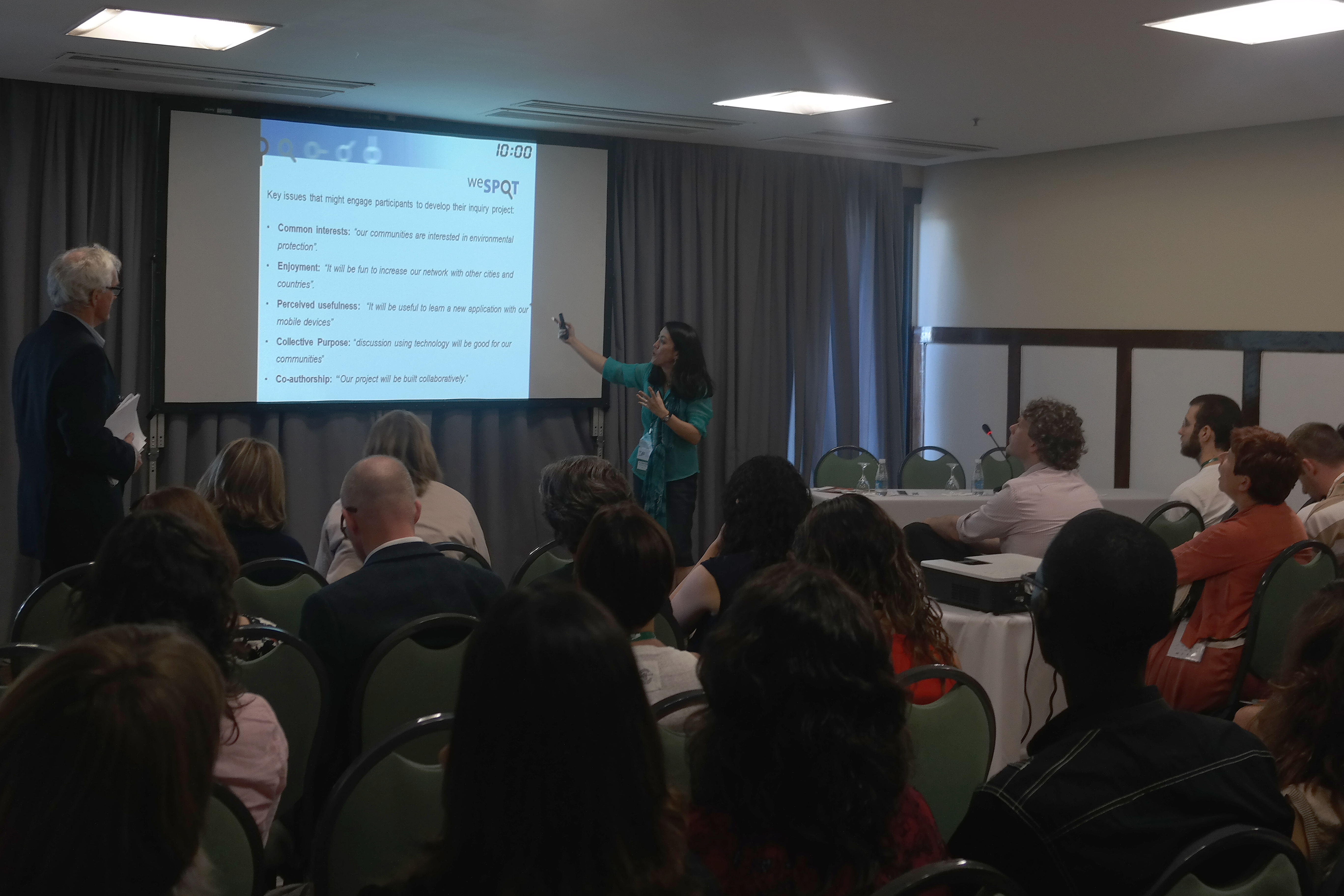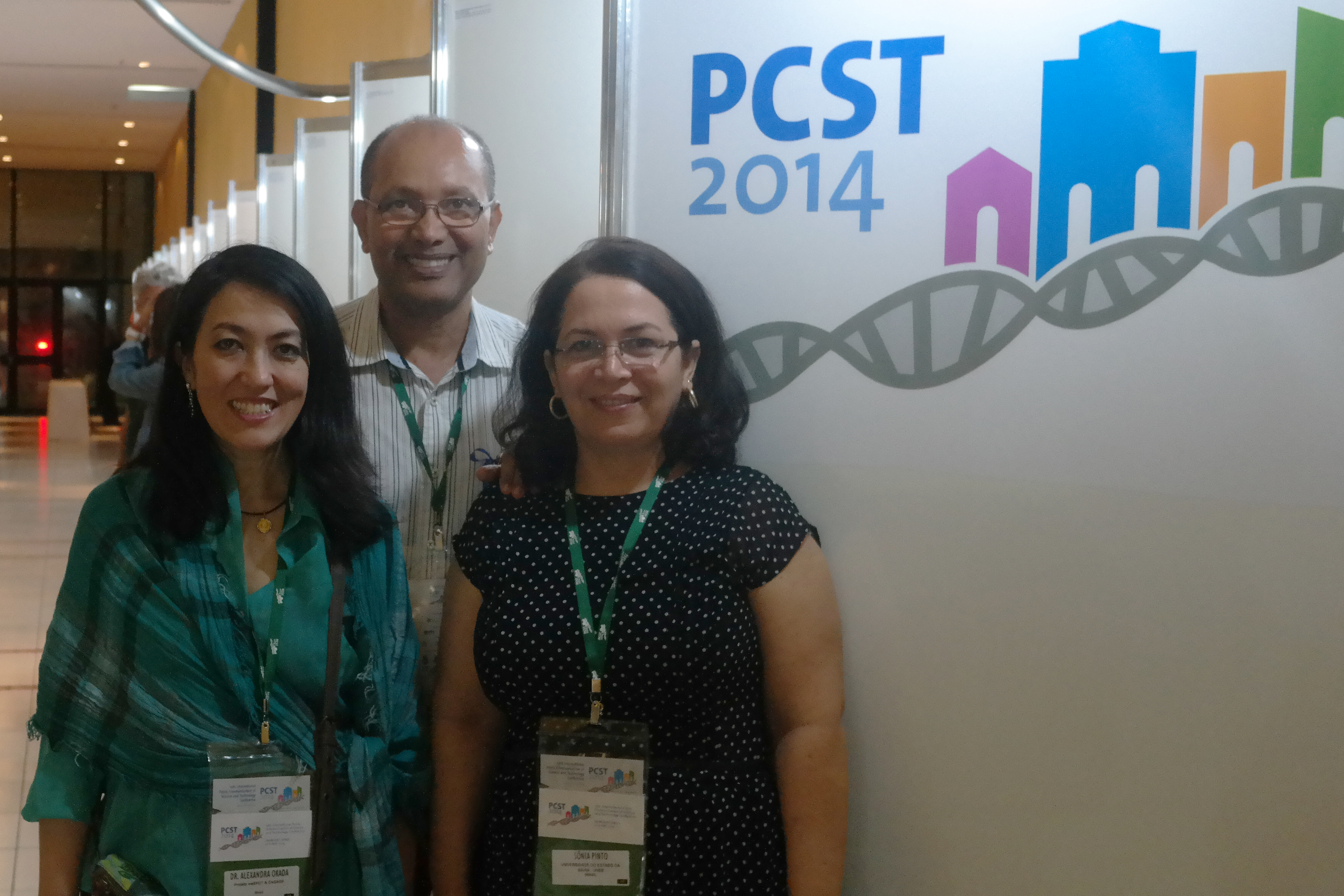The 13th International Public Communication of Science and Technology Conference (PSCT 2014), held in Salvador – Brazil, is one of the most important events in Science Communication. Ale Okada, Sonia Pinto and Silvar Ribeiro presented a case study about weSPOT for promoting scientific literacy through collaborative inquiry.
The PCST 2014 conference aims to raise more inclusive strategies, improve citizenship through public engagement and to discuss new models and practices for communication and participation. Okada, Pinto and Ribeiro introduced collaborative open research, with the aim of addressing these three issues by creating a framework for applying “co-inquiry” – collaborative open inquiry to scaffold citizens’ scientific skills through digital technologies.
The first pilot, which focuses on collaborative research on biodiversity, was organised by The Open University (OU) through the European project “weSPOT” for inquiry based learning, as well as the Universidade do Estado da Bahia (UNEB), coordinator of the “Telecentros.BR” training programme for Digital Inclusion.
weSPOT is a working environment with social, personal and open technologies for inquiry based learning (IBL) in formal, non-formal and informal contexts.
The Telecentros.BR training programme (2013-2014) is a non-credit online course supported by the Brazil Government. The participants are over 2,500 young educators in diverse areas with low access to digital technology. The role of these young educators is to promote better use of ICT and support the Telecentro.BR’s projects, created by the local communities who do have limited access to the internet with the exception of the Telecentro.BR’s buildings.
Public Communication of Science and Technology aims to include particularly low income people who have no access to education and to science materials; people who live in remote areas and have no access to science spaces and science goods; immigrants who have difficulty in understanding the language and the cultural context; disabled people, etc.
“Scientific Literacy through Co-Inquiry” would like to bring diverse participants together from local communities, schools and universities- including learners, educators and families to develop a collaborative investigation through weSPOT.
Related Links:



